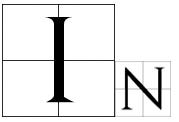Member-only story
The Voynich Manuscript
The most mysterious book in history
 In 1912, Polish book collector Wilfrid Voynich bought thirty volumes from the Jesuit Collegio Mondragone in Italy. They were Church property and so the College didn’t really have the right to sell them, but it was hard up for funds, and besides, nobody had looked at the books for at least a century. Still, when he wrote about the books nine years later, Voynich was careful to say that he “found them in an ancient castle in Southern Europe”.
In 1912, Polish book collector Wilfrid Voynich bought thirty volumes from the Jesuit Collegio Mondragone in Italy. They were Church property and so the College didn’t really have the right to sell them, but it was hard up for funds, and besides, nobody had looked at the books for at least a century. Still, when he wrote about the books nine years later, Voynich was careful to say that he “found them in an ancient castle in Southern Europe”.
Voynich concluded that the books had belonged to Italy’s noble families, as they were lavishly-decorated with the insignia of the dukes of Parma, Ferrara and Modena. One smaller and much plainer volume, however, caught his eye. “It was such an ugly duckling compared with the other manuscripts, with their rich decorations in gold and colors, that my interest was aroused at once” he wrote.
Opening the odd little book, Voynich found that it was two hundred and forty pages long, written entirely in an unknown script, and full of strange illustrations of real or fanciful plants and animals and little figures of women. For all his experience with rare and antique books, he could make neither head nor tail of it, although he assumed it must be some sort of encyclopedia of natural philosophy based on the pictures.